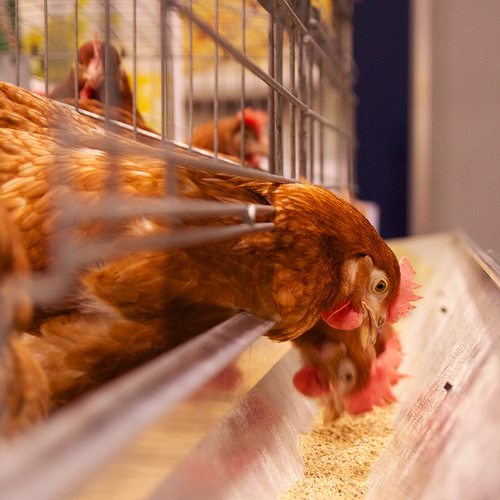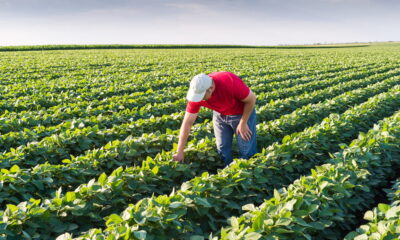

Environment
Noble Foods, Marks & Spencer, Waitrose and Coop Group (Switzerland) Lead Global Benchmark on Farm Animal Welfare
Noble Foods, Marks & Spencer, Waitrose and Coop Group (Switzerland) have attained the highest marks in the global Business Benchmark on Farm Animal Welfare report, published tomorrow. Now in its fourth year, the Business Benchmark on Farm Animal Welfare (BBFAW) provides an annual review of how 90 of the world’s leading food companies are managing and reporting their farm animal welfare policies and practices.
The report, which is compiled in collaboration with leading animal welfare organisations Compassion in World Farming and World Animal Protection and investment firm, Coller Capital, reveals that companies are increasing the importance they attach to farm animal welfare.
For example:
69% of companies now have published farm animal welfare policies (compared to just 46% in 2012)
54% of companies have published targets on farm animal welfare (up from 26% in 2012
Currently, 11 companies occupy leadership positions in the Benchmark’s top two tiers. These companies demonstrate the strongest commitments to farm animal welfare and have well developed management systems and processes. They include Marks & Spencer, Coop Group (Switzerland), Waitrose and Noble Foods in Tier 1,and The Co-operative Food (UK), J Sainsbury, Unilever, Cranswick, Marfrig, McDonald’s and Migros in Tier 2.
Reflecting on these findings, BBFAW Executive Director, Nicky Amos, said, “The results show that it is realistic for companies across the world and in all sub-sectors (retailers, wholesalers, restaurants, bars and producers) to aspire to and achieve high scores in the Benchmark and to recognise the responsibility they hold for the welfare of animals in their supply chains.”
Despite the overall progress made since 2012, some 40% of companies (including Burger King, Domino’s Pizza Group (UK) and Starbucks) provide little or no information on their approach to farm animal welfare. Nicky Amos commented “Despite the progress we are seeing, there is clearly much work to be done to get farm animal welfare on the business agenda of many large global food companies”.
The report highlights the growing influence of global investment companies on farm animal welfare. Reflecting on the global investor collaboration on farm animal welfare convened by the BBFAW and which now has 18 investors representing over one trillion pounds in assets under management,Rory Sullivan, BBFAW Expert Advisor said, “For the first time we are seeing global investors actively engage with companies to encourage them to improve their practices and reporting on farm animal welfare. The annual Benchmark provides a strong incentive for companies to improve their disclosure and to account for their performance. As we build investor awareness and understanding of systemic risks and opportunities posed by farm animal welfare, we expect to see investor interest and, critically, action, increase over time”.


 Environment12 months ago
Environment12 months agoAre Polymer Banknotes: an Eco-Friendly Trend or a Groundswell?

 Features11 months ago
Features11 months agoEco-Friendly Cryptocurrencies: Sustainable Investment Choices

 Features12 months ago
Features12 months agoEco-Friendly Crypto Traders Must Find the Right Exchange

 Energy11 months ago
Energy11 months agoThe Growing Role of Solar Panels in Ireland’s Energy Future




























